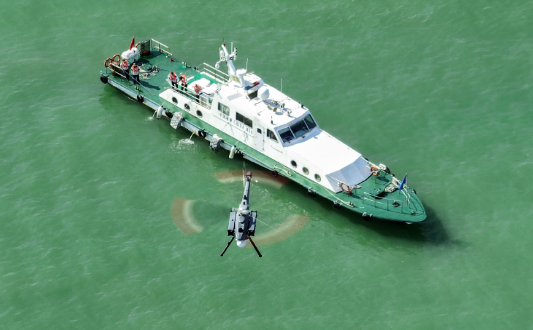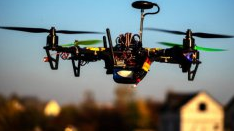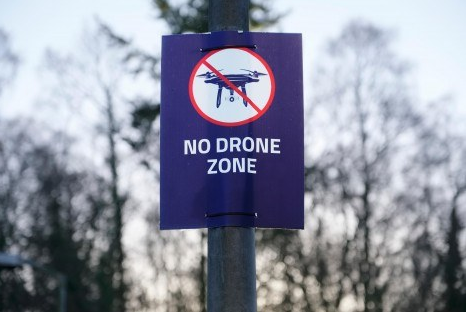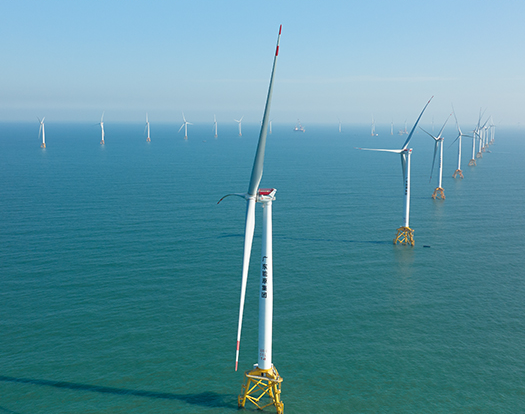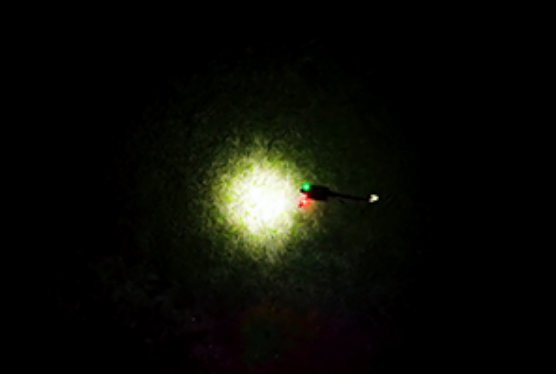Maritime law enforcement is an important task in maintaining maritime order and ensuring navigation safety. In recent years, with the development of drone technology, the maritime industry has gradually begun to adopt it for law enforcement work. This article will delve into the application of maritime law enforcement drones and compare traditional methods to analyze their differences.
Application in Maritime Law Enforcement
1. Basic functions: Maritime law enforcement drones can be used for tasks such as patrol monitoring, investigation, border patrol, and emergency rescue, with flexible, efficient, and diverse applications.
2. Ship supervision: It can monitor the activities of ships in the sea area in real time, identify violations and potential safety risks, such as illegal fishing, illegal immigration, and illegal departure from the dock.
3. Sunken ship search: Using high-precision cameras and sonar equipped with drones, sunken ship search and rescue operations can be carried out on a large scale to improve search and rescue efficiency and accuracy.
4. Island defense: It is possible to bypass the island for patrols, check for potential threats and abnormal situations, and assist island patrol personnel in island defense work.
Differences from traditional methods
1. Inspection scope: Maritime law enforcement drones can quickly fly over large areas of the sea and transmit real-time data back to the control center through high-precision sensors, achieving comprehensive monitoring and coverage. In contrast, traditional cruise control methods are limited by navigation speed and human resources, making it difficult to achieve comprehensive monitoring of vast sea areas.
2. Law enforcement efficiency: It can quickly respond to instructions, hover in areas that need to be monitored, obtain high-definition images and collect intelligence, effectively reducing the cost and time of maritime law enforcement. Traditional law enforcement methods require long-term patrols and human resource investment.
3. Safety risk: Drone law enforcement can keep law enforcement personnel away from danger and harsh maritime environments, reduce their safety risks in law enforcement actions, and improve the safety of maritime law enforcement. In contrast, traditional law enforcement methods require law enforcement personnel to be physically present at the sea, facing potential adverse weather and maritime traffic risks.
4. Data collection and analysis: Maritime law enforcement drones are equipped with high-precision sensors and cameras, which can collect real-time images, videos, and other sensor data, and extract key information through data analysis techniques. This enables maritime law enforcement personnel to more accurately grasp the situation, make decisions, and optimize strategic deployments. Traditional law enforcement methods often rely on manual observation and judgment, which are easily influenced by subjective factors.
The application of maritime law enforcement drones has advantages over traditional methods, such as a wide inspection range, efficient law enforcement efficiency, low safety risks, and accurate data collection and analysis. The continuous development and improvement of new technologies will provide more innovative law enforcement solutions for the maritime industry, making further contributions to maintaining maritime order and ensuring navigation safety. At the same time, we should also pay attention to the problems and challenges faced by drone law enforcement, and provide appropriate norms and guarantees for its sustainable development.
 2023-12-19
view:78
2023-12-19
view:78
